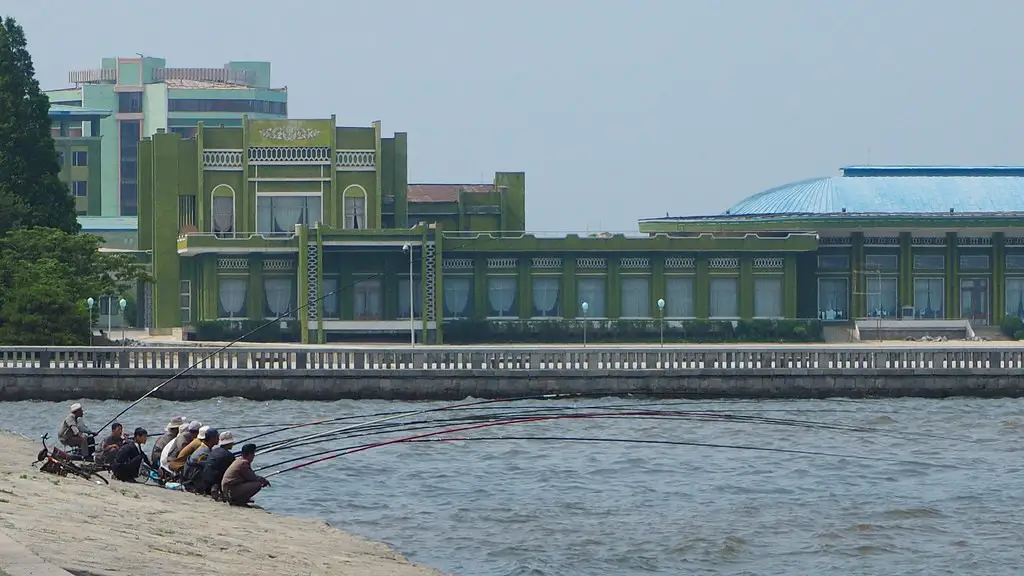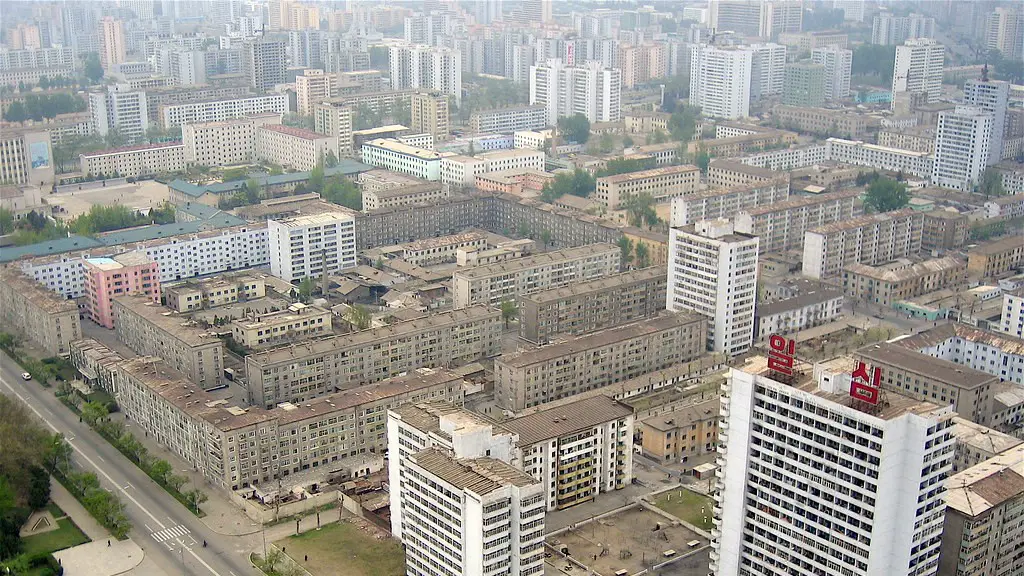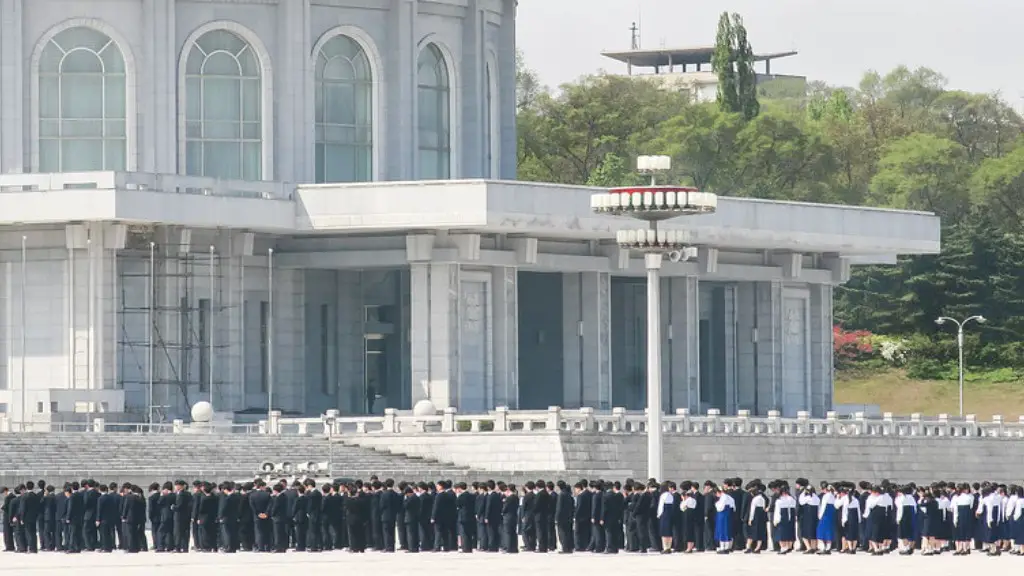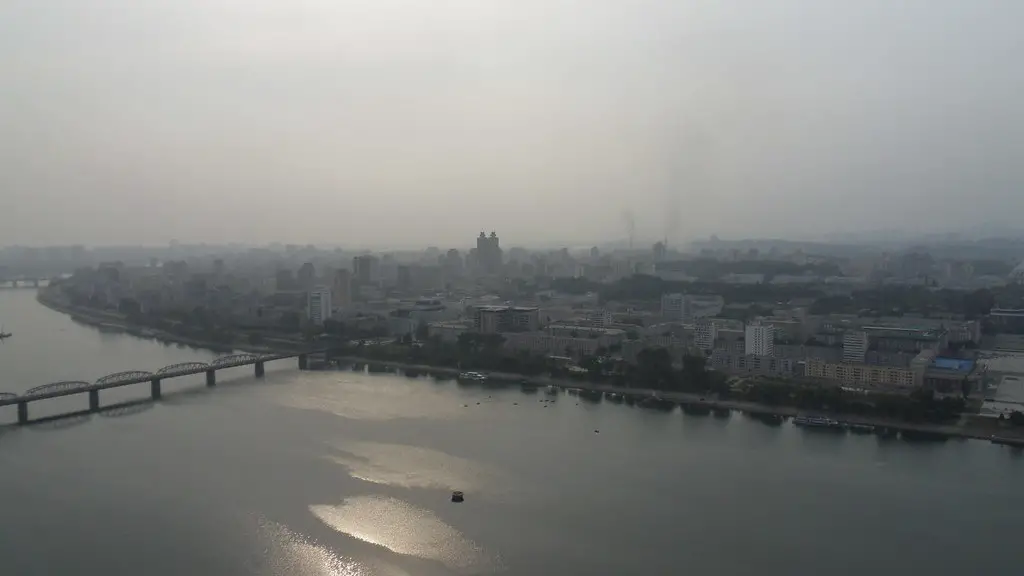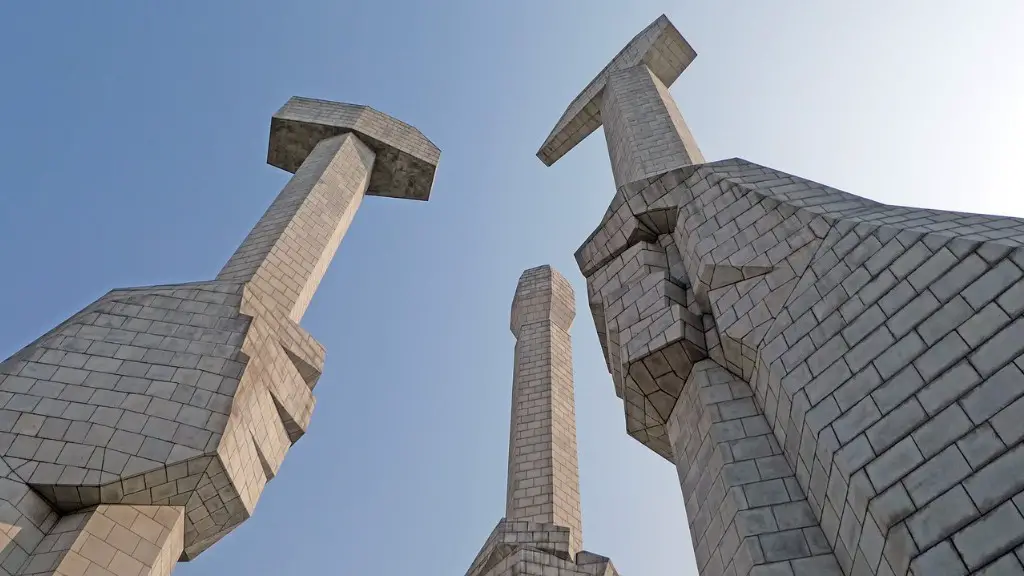As tensions between the U.S. and North Korea have been steadily increasing, it is no surprise that many people have questions about why America is going to war with the isolated and reclusive country. Over the last two years, the two countries have been locked in an escalating and dangerous dispute, with North Korea claiming to possess nuclear weapons and conducting missile tests, and the U.S. responding with sanctions, threats, and heated rhetoric.
The U.S. and the world have been facing a stark threat ever since North Korean leader Kim Jong-un assumed power and has made good on his promise of developing nuclear weapons and conducting missile tests. This has led to several U.N. Security Council resolutions, but the situation has only gotten worse, and it appears that war could be inevitable if North Korea continues to pursue its nuclear arsenal. On top of the regime’s stubborn stance, North Korea has recently been accused of launching cyber-attacks, assassination attempts, and chemical weapons attacks against other countries.
The United States is considering going to war with North Korea for several reasons. The most significant is the threat that the regime’s nuclear and missile development poses, not just for American interests, but for the entire world. The U.S., along with other countries, is worried that North Korea might eventually be able to reach the United States with nuclear-tipped missiles, as well as other countries in the region. Additionally, there is a concern that, if left unchecked, North Korea’s nuclear capabilities will only grow, leading to a nuclear arms race in the region, and ultimately, more dangerous weapons systems.
Another reason the U.S. is considering war is that diplomacy has failed. For several years, the U.S. and its allies have tried to negotiate with North Korea, but the regime has consistently refused to give up its nuclear weapons and ballistic missile programs. In the face of increasing sanctions and diplomatic pressure, North Korea has only continued to pursue its weapons programs, and its saber-rattling has become increasingly worrisome.
Many American officials view the situation as a matter of national security. The U.S. is determined to prevent North Korea from becoming a nuclear power, and its current strategy includes an increased presence in the region, as well as the recent deployment of a nuclear-capable bomber to the Korean peninsula. The U.S. is also seeking increased cooperation from China, which is North Korea’s main ally.
The U.S. is also taking a hard-line stance on North Korea in order to send a message to other countries that might be considering developing weapons of mass destruction. Some experts believe that the U.S.’s response to North Korea could be a signal that the U.S. is willing to stand up to rogue regimes and that it will not accept any nation possessing nuclear weapons. It is a powerful message that the U.S. will not back down in the face of nuclear threats.
North Korea’s Response
North Korea has responded to the mounting pressure from the United States and other countries by escalating its missile and nuclear tests. The country has also become increasingly belligerent in its rhetoric and actions, including its most recent threats to test a nuclear device and launch a missile at Guam, the U.S. territory in the Pacific Ocean.
The regime is also actively seeking to undermine U.S. interests in the region. It has increased its cyber-attacks on South Korea, and has engaged in numerous other provocations, such as assassination attempts on outspoken critics of the regime. Its actions suggest that it is willing to go to great lengths to preserve its power and autonomy.
In recent months, the U.S. has sought to increase its presence in the region, sending warships, fighter jets, and bombers to engage in exercises with its allies. The U.S. is also reportedly exploring the possibility of deploying an anti-missile system to South Korea. But these measures are seen by some as too little, too late and as merely a stopgap measure, as long as North Korea continues to develop and test missiles, and as long as it refuses to give up its nuclear program.
The North Korean People
One of the most overlooked aspects of the looming conflict is the plight of the North Korean people. For decades, the people of North Korea have suffered under the oppressive regime, and many of them are living in poverty. They have very limited access to outside information, and are subjected to harsh punishment if they are caught listening to foreign media or engaging in any activities deemed dangerous by the regime.
Recently, there have been reports of famine in some parts of the country and news of people being sent to forced labor camps. This is all while the regime is pursuing its nuclear program, which not only threatens peace in the region but also uses up large amounts of resources that could be used to help the people.
It is estimated that the United States and its allies would need to deploy hundreds of thousands of troops in order to successfully invade North Korea. The war would not only be devastating for the North Korean people, but for the entire region, as it is likely to lead to a humanitarian disaster.
The International Community’s Response
The international community has responded with outrage to North Korea’s provocations, and many countries are taking action to isolate the country and bring an end to its weapons programs. But the situation is far from resolved and there is still a great deal of uncertainty surrounding the future.
The United Nations has been highly critical of North Korea and has imposed several rounds of sanctions on the country, but so far, it has had no visible effect on the regime. Most countries also have imposed their own sanctions and have offered various incentives in hopes of convincing North Korea to abandon its weapons program, but so far, none of these measures have been successful.
Meanwhile, some countries, such as China and Russia, have taken a more conciliatory stance, pushing for negotiations and dialogue instead of military action. They argue that a military intervention would lead to devastating consequences, and that North Korea should be given a chance to change its policy and move towards peace.
The Risk of War
The risk of war is growing, as the U.S. and its allies are preparing for the possibility of military action. Most experts agree that a war with North Korea would be catastrophic, with hundreds of thousands of casualties if not more, and devastating economic and geopolitical consequences for the region and the world.
It is also a risk that is largely unnecessary, as there are other ways to resolve the conflict. Negotiations and diplomacy are still on the table, and if the U.S. and the international community can find a way to bring North Korea to the negotiating table, war may yet be averted.
The Nuclear Weapons Threat
At the heart of the dispute is the threat posed by North Korea’s development of nuclear weapons. The U.S. is adamant that the country should not be allowed to develop and deploy these weapons, and many of its allies agree. But it is also a highly complex issue, as eliminating North Korea’s nuclear capability would require immense resources and diplomatic skill.
The U.S. and its allies are pushing for a denuclearization of North Korea, but the regime is unlikely to agree to such a measure without some sort of concessions. It will be a difficult process, and even if a deal is reached, there is no guarantee that it will lead to lasting peace. If the U.S. and its allies can find a way to reach an agreement with North Korea, it could be a major step towards averting a catastrophic war.
The Humanitarian Impact of War
War with North Korea would have a catastrophic humanitarian impact. Millions of people would be at risk, and the already desperate situation in the country would only worsen. Over a million people are already displaced, and a war would lead to further suffering. It would also cause lasting damage to the environment, as North Korea has already been suffering from pollution and deforestation.
In the event of war, the U.S. and its allies would need to prepare for the possibility of a massive influx of refugees, as millions of North Koreans would likely be displaced by the conflict. The U.S. has already taken steps to prepare for such an eventuality, but it is a grim prospect and one that should be avoided if at all possible.
The war would also have devastating economic consequences. North Korea is already one of the poorest countries in the world, and a war would only deepen its poverty and despair. In addition, South Korea would suffer economically, as it would be exposed to a massive influx of refugees and the destruction of vital infrastructure.
The Growing Tensions
The growing tensions between North Korea and the U.S. are alarming, and the prospect of a war is becoming increasingly likely. The potential consequences are enormous, and it is clear that any war would be devastating for the region and the world. The U.S. and the international community need to take action to avoid the nightmare scenario of an armed conflict with North Korea.
The U.S. must remain firm in its commitment to denuclearization, and must demonstrate that it is willing to engage North Korea in earnest negotiations. It must also continue to work with its allies to apply economic and diplomatic pressure on North Korea in order to bring an end to its weapons program and reduce tensions in the region.
At the same time, it is essential that the U.S. and the international community not take any actions that could further escalate tensions. The situation is delicate and there is no room for miscalculation. With the right approach, it may still be possible to avoid a war with North Korea.
